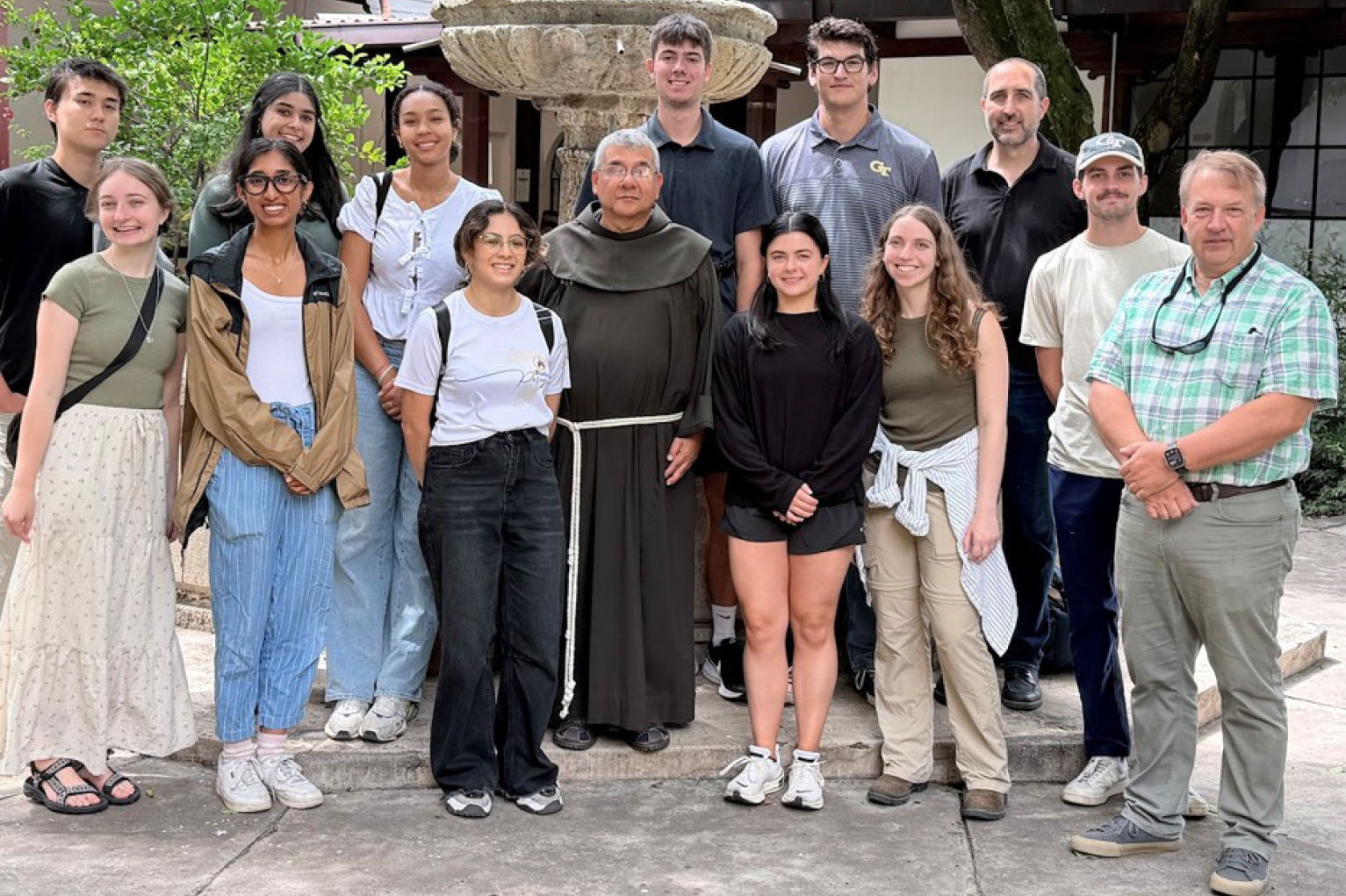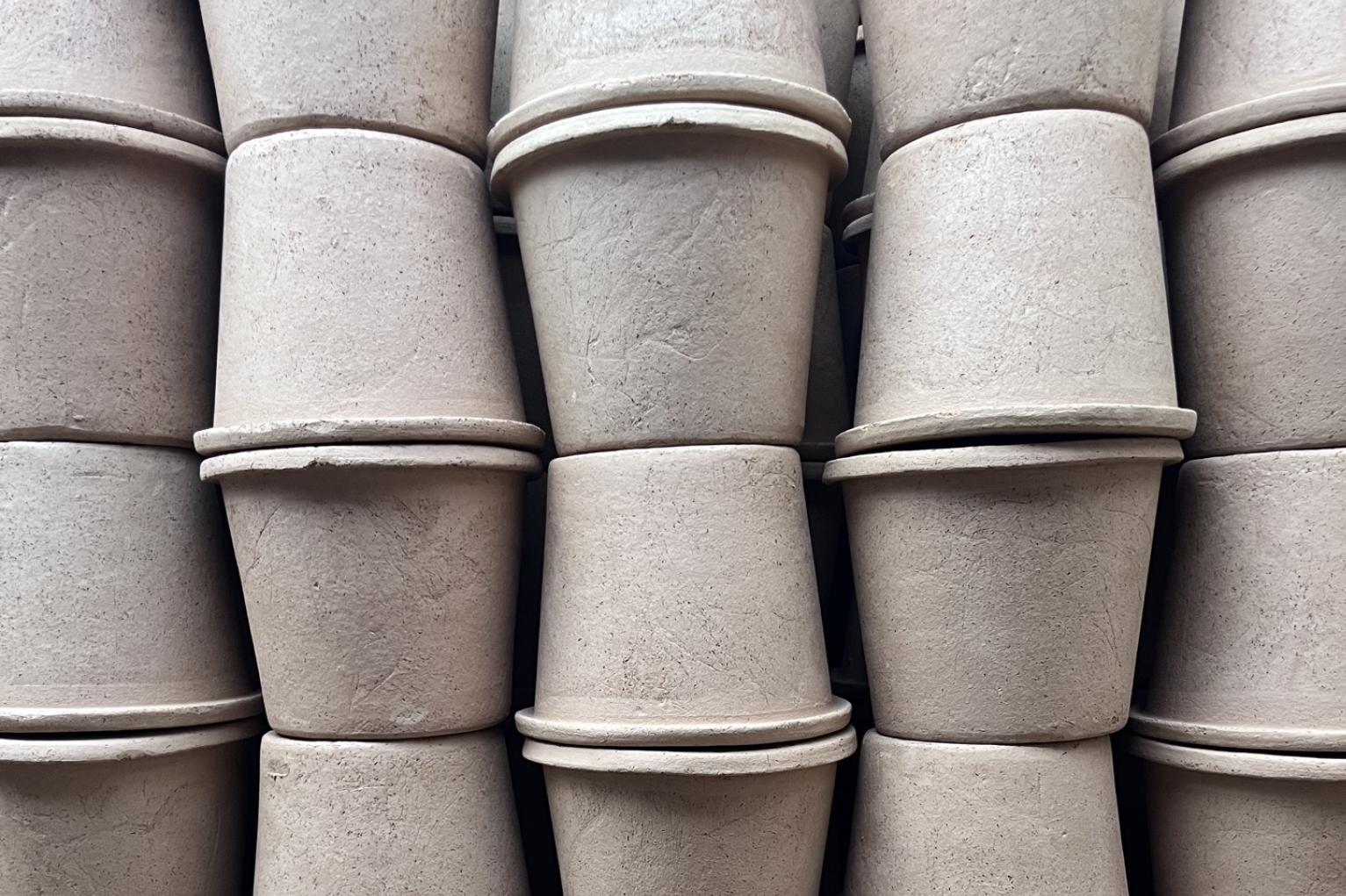
Engineering for Impact: Capstone Design Teams Tackle Global Challenges
November 18, 2025
By Tracie Troha
This fall, four mechanical engineering and interdisciplinary Capstone Design teams spent the semester developing technologies to address challenges in Guatemala as part of a new initiative called Design for Planet Impact. Their unique prototypes will debut at the upcoming Fall 2025 Capstone Design Expo, where more than 600 students from across engineering and industrial design disciplines will showcase their senior projects.
Under the guidance of Professor of the Practice and Interim Associate Chair for Innovation and Entrepreneurship Mike Tinskey, and supported by mechanical engineering doctoral student Fiona Chun, the students applied their classroom knowledge to real-world problems.
“Design for Planet Impact is taking the amazing talents of Georgia Tech students and applying those engineering skills to underserved markets,” Tinskey, who holds the inaugural Siemens Corporation Termed Professorship, said. “One of the first markets we’ve been looking at is Guatemala. We had students identify problems we could solve with engineering. We came up with four products, and those products are now what the Capstone teams are designing.”
In October, 12 students from the four teams traveled to Antigua, Guatemala, to conduct fieldwork. They met with local residents, visited hospitals and clinics, and learned firsthand about the challenges faced in underserved communities.
“It was a very educational and enriching experience,” Tinskey said. “The students got to learn how people survive in Guatemala and how we could help in some situations.”
The four Capstone teams — Big Mastermind Energy, Comfort Companion, Ramblin’ Mech, and Team Sight — each tackled a distinct challenge informed by their research.
Big Mastermind Energy (BME): Reusable Medical Suction Filters
Inspired by local practices and consultations with medical professionals, the BME team is designing a low-cost, reusable filter for medical suction machines. Their solution could reduce costs to under $1 per filter, improving safety and sustainability in resource-limited hospitals.
Team Members: Chenghao Dong (ME), Lukas Harmeyer (BME), Alissa Klein (BME), Aastha Singh (ME), and Halley Wallace (BME)
Comfort Companion: A Tech-Enhanced Stuffed Animal for Hospitalized Children
The Comfort Companion team aims to develop stuffed animals equipped with sensors and interactive features to comfort children experiencing medical trauma. Their ideas include creating plush companions that can monitor heart rate and temperature or connect children with peers who have faced similar medical challenges.
Team Members: Thomas Chan (CmpE), Michael Davis (ME), Dixuan Han (CmpE), Tam Tuyet Le (CmpE), and Eric Wen (ME)
Ramblin’ Mech: Tackling Arsenic in Drinking Water
In Guatemala, volcanic activity contributes to high levels of arsenic in drinking water, posing serious health risks. The Ramblin’ Mech team is developing an innovative insert for existing water filtration systems to remove arsenic, building on the eco-filter technology already in use. Their design aims to make clean water more accessible and safer for Guatemalan families.
Team Members: Grace Clopton (ME), Evan Goldstein (ME), Paxton James (ME), Amber Mistry (ME), and Virginia Weston (ME)
Team Sight: Prescription Glasses Without a Doctor
Guatemala has very few optometrists and ophthalmologists, making it difficult for many children to obtain prescriptions. Team Sight aims to design an adjustable lens mechanism that can serve as a diagnostic tool, helping users determine their prescriptions without a trained specialist. Their device is being developed alongside durable, adjustable frames.
During their trip, the students learned that local children preferred frames with earth-toned, discreet designs and sturdy enough to withstand active play, such as soccer. Ultimately, the team hopes to create a low-cost, easy-to-use system that improves access to vision correction for children in underserved communities.
Team Members: Braden Anderson (ME), Katherine Britt (ID), Kathleen Coleman (ME), Patrick Ferris (ME), Alexis Iaryczower (ME), and Rebecca Scarbrough (ID)
Looking Ahead
For the Design for Planet Impact teams, their work could be a stepping stone toward real-world implementation.
“We're envisioning that these Capstone teams will hand off their designs and work to next semester's Capstone teams,” Tinskey said. “Hopefully, at the end of the full academic year, we'll have some designs that we can take into production.”
Check out the teams’ prototypes at the Fall 2025 Capstone Design Expo on Dec. 1 at 4 p.m. at McCamish Pavilion.


